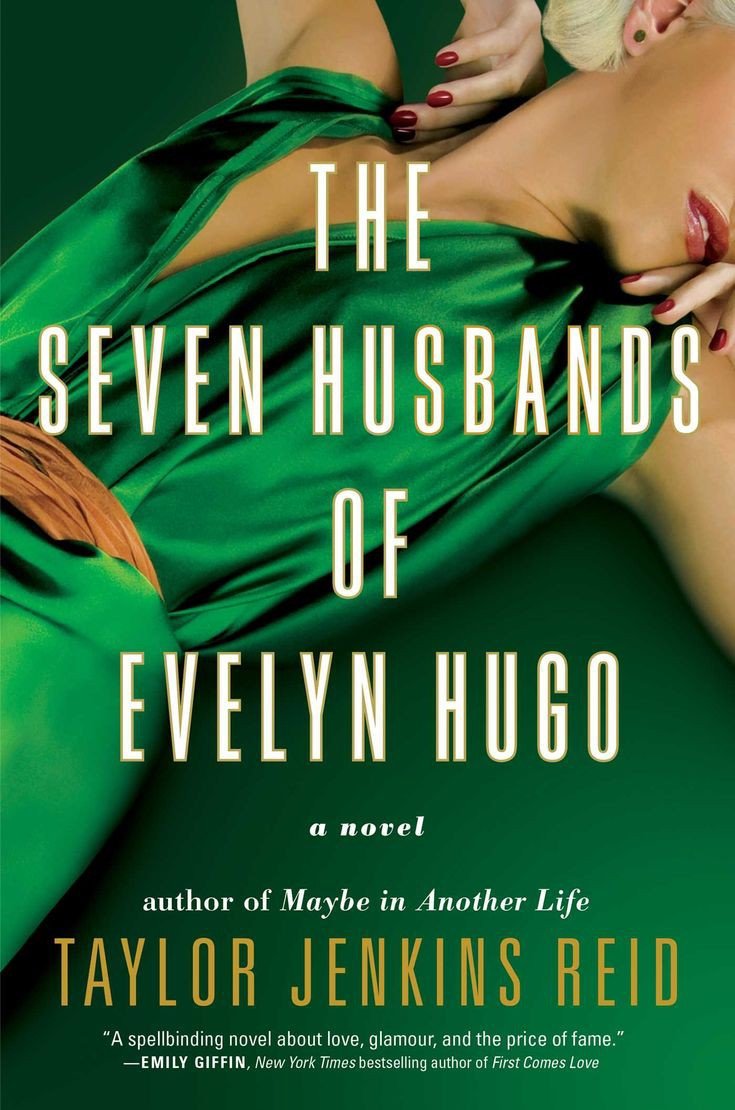Book Review Of The Seven Husbands Of Evelyn Hugo By Taylor Jenkins Reid
The Seven Husbands Of Evelyn Hugo is quite literally about the seven husbands of Evelyn Hugo -but not in the way you’d think. It’s less about the husbands and more about Evelyn herself and her full, full life. Evelyn tells the story of her Hollywood career, starting with the abuse she endured as a kid to her navigation towards stardom. She did whatever it took to get her success and had no regrets about it! She tells us of her time in Hollywood and how in one way or another, show business led her to all her husbands…and the love of her life. Evelyn tells us a story of self-discovery and a love so intense it rippled through time.
What is interesting is how she chooses to tell her story. She finds a young, mostly unknown writer named Monique Grant to pen her tale and gives her freedom to do with it as she sees fit. While this may typically be unusual, in the case of reclusive icon Evelyn Hugo, her decision to tell her story to a “nobody” is truly shocking. Monique is also astounded to be handed the biggest interview of her life, and can’t fully wrap her head around it. She was, however, up to the challenge of finding out why she was sought out. What she doesn’t expect is that it would be so painful.
I literally couldn’t stop reading this book. I almost never put it down!! I’ve known about The Seven Husbands Of Evelyn Hugo for almost five years now but I always told myself I’d get to it. Until now, I never did and I weirdly don’t regret it. I feel I wouldn’t have appreciated the inclusivity and diversity if I had read this as a teenager. I feel I read it exactly when I was supposed to. Evelyn takes us through a whirlwind of a story, expressing what it meant to be Cuban in America in the 1950s. We see Evelyn try to clarify that she’s not Mexican but Cuban, however, it predictably and unfortunately never sticks. She and the readers by extension learn that people don't care who you are, only what they think you are. Evelyn eventually had to get behind being passed as white. As already mentioned, she did all she could to get to where she got and being a blonde bombshell with massive boobs sold better than a Mexican (Cuban*) wannabe trying to make it in a world that just wouldn’t accept her.
Reid shows the struggles of a Cuban woman in the 50s but also the realities of a black presenting, biracial woman raised by her white mother in th 21st century. Monique’s race was so obscure I didn’t know she was biracial until it was mentioned in the book. If it was never mentioned I would have believed she was a caucasian woman, which I felt was understandable because she wouldn’t have grown up in the mix of two cultures. She would have grown up knowing she’s part black but surrounded by white culture and all that entails, experiencing her black side when and probably only when she was being discriminated against because of the colour of her skin.
Reid also explored the realities of a lesbian, gay and bisexual woman(amongst many others) living in 1950s Hollywood. We see a lesbian having to hide her sexuality as often as she could for obvious reasons. She had to go as far as getting a beard to avoid detection. We also see the lengths a gay man goes to, to hide his sexuality and the pain he suffers when friends and ex-lovers start dying from HIV and AIDS because of ignorance, prejudice and hate. Lastly, we see a bisexual woman struggle to find her sexuality and when she finally does, she still has to fight to hold on to that identity, even when she didn’t have a name for what she was. People either thought she was a lesbian or a straight woman. There was never any in-between. She didn’t always take that kindly and made it clear that one side of her doesn’t get to be erased to fit anyone’s narrative.
I absolutely fell in love with the portrayal of old Hollywood. Reid did such a good job that I found myself wanting to find and watch the ‘movies’ presented in the book. I had to remind myself constantly that this was a historical fiction novel, not a historical non-fiction and that most of the films didn’t actually exist. I also loved how powerful people in Hollywood quietly began funding LGBTQ movements after they witnessed the Stonewall riots. It woke something in them that wasn’t truly there before. It also showed them that they were not alone. They had never been alone.
I genuinely have nothing bad to say about this book. I feel Reid did the queer, BIPOC and old Hollywood community immense justice. She weaved Evelyn’s entire life story in such a seamless way, I was never bored. It’s a spectacular bildungsroman that kept me at the edge of my seat throughout the entire read. If I was to nitpick anything at all, it would be Monique’s reaction to how she and Evelyn were connected. Reid built and built and built up to that moment but when it came it felt, in some ways, in-authentic.The feelings that were made clear to us long before we knew why they existed should have lingered longer. I feel Monique should have sat with her feelings more but other than that, this book was an amazing read and I’ll be reading it again and again.
I recommend this book to anyone completely in love with movies, history and passion. I also recommend it to anyone seeking QTBIPOC representation. Additionally, I give this book an easy 9/10!


